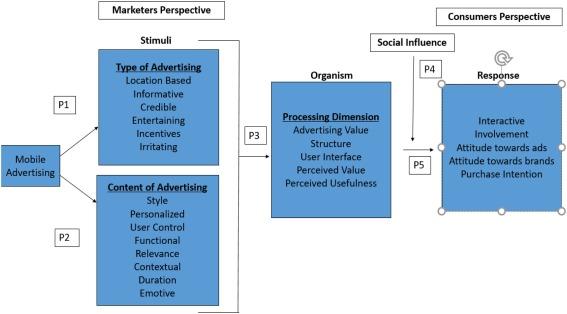Top Skills and Strategies for an Events Coordinator in Education Technology
Are you aspiring to build a rewarding career as an Events Coordinator in Education Technology? Universities, colleges, and schools increasingly rely on dynamic and tech-savvy professionals to manage educational events. The EdTech sector is evolving rapidly, blending digital innovation with academic goals to create transformative experiences. This guide explores the core skills, key responsibilities, and proven strategies to help you succeed in an events coordinator role in the education technology space.
Understanding the Role of an Events Coordinator in Education Technology
An Events Coordinator in the EdTech sector plays a critical role in planning, organizing, and executing various educational events, including conferences, professional development workshops, webinars, product launches, and student tech fairs. This role involves balancing technology integration, academic objectives, and seamless event management to meet the evolving needs of educational institutions and stakeholders.
- Planning and executing campus-wide tech events.
- Coordinating with IT teams, educators, vendors, and EdTech companies.
- Promoting events to students, faculty, and the community.
- Managing event budgets and logistics.
- Utilizing event management platforms and educational technology tools.
Essential Skills for an EdTech Events Coordinator
- Project Management: Ability to coordinate to-do lists, timelines, and resources efficiently for large-scale events.
- EdTech Proficiency: Familiarity with leading education technology solutions and event platforms (Zoom, Microsoft Teams, LMS integration, hybrid event tools).
- dialog: Excellent written and verbal communication to liaise with academic and technical staff, vendors, and participants.
- Problem-Solving: Skill in troubleshooting unforeseen challenges in technology, logistics, or attendee engagement.
- Teamwork and Collaboration: Ability to coordinate with cross-functional teams, including IT, faculty, and marketing departments.
- Attention to Detail: Ensuring all event elements are aligned with institutional goals and deliver a flawless experience.
- Adaptability: Comfort in pivoting between in-person, virtual, and hybrid event formats as needed.
- Marketing and Promotion: Understanding of digital marketing tools for promoting events within educational communities.
Key Strategies for succeeding as an Events Coordinator in Education Technology
Thriving in an EdTech events management role involves combining conventional event-planning skills with a strategic understanding of educational technology. Here’s how you can set yourself apart:
1. Stay updated with EdTech Trends
- Subscribe to EdTech news, attend industry webinars, and participate in technology workshops.
- Bring innovative solutions (like AR/VR demonstrations or gamification) to your institution’s events.
2. Leverage Event Management Platforms
- Master platforms such as Eventbrite, Cvent, or Whova, and integrate them with school or university technology ecosystems.
- Use data analytics to measure event success and participant engagement.
3. Develop Strong Stakeholder Relationships
- Build rapport with faculty, management, IT specialists, and external EdTech vendors.
- Utilize feedback from past event participants to continuously refine event offerings.
4. Create Accessible and Inclusive Events
- Ensure venues and platforms accommodate diverse participants, including those with disabilities.
- Integrate closed-captioning, translation, and other accessibility tools into event planning.
5. Master Hybrid and Virtual Event Coordination
- Design engaging experiences for both in-person and remote attendees using interactive technologies.
- Handle live streaming, breakout rooms, and online networking with confidence.
6. Showcase Results and Impact
- Prepare post-event reports, highlighting successes, learning opportunities, and real impact on learning outcomes or community engagement.
- Share event highlights via institutional newsletters and social media channels to demonstrate your contributions.
Benefits of Working as an Events Coordinator in Education Technology
Choosing a career as an EdTech Events Coordinator offers many professional and personal rewards:
- Dynamic Work Surroundings: Each event presents new challenges and opportunities to innovate with technology.
- Professional Growth: Gain exposure to the latest education technology tools and collaborative learning environments.
- Networking: Connect with thought leaders in academic technology and expand your professional circle.
- Positive Impact: Facilitate learning and development among students, educators, and the wider academic community.
- Transferable Skills: Enhance your project management, communication, and tech expertise for future opportunities in education and beyond.
Practical Tips to Land an EdTech Events Coordinator Job
If you’re eager to enter the field,here are practical steps for job seekers targeting this in-demand role at universities,colleges,or schools:
- Build a Tech-Savvy Resume: Highlight experience with event management platforms,educational technology,or digital marketing tools.
- Acquire Certifications: Consider courses in project management,event planning,or EdTech fundamentals.
- Develop a Portfolio: Showcase successful events you have coordinated, emphasizing your role in tech integration.
- Get Involved in Education Communities: volunteer for campus events, EdTech clubs, or professional associations for hands-on experience.
- Practice Interview Scenarios: Be ready to discuss how you’ve handled technology challenges, managed hybrid events, or gathered feedback for continuous improvement.
Frequently Asked Questions: events Coordinator in Education Technology Jobs
What qualifications are needed for an Events Coordinator in EdTech?
Most roles require a bachelor’s degree in event management, education, communication, or business.Experience with event planning and knowledge of education technology tools are highly advantageous. Certifications in project management or EdTech are beneficial.
What types of events do EdTech coordinators typically manage?
Responsibilities may include organizing technology conferences,staff training sessions,student hackathons,webinars,new tech rollouts,and hybrid learning events.
How vital is knowledge of educational technology?
Very critically important. Being agreeable with learning management systems, video conferencing tools, and digital engagement platforms is frequently enough a job requirement.
what career growth opportunities exist in this role?
Successful EdTech Events Coordinators can progress into senior event management roles, become directors of student engagement, or transition to EdTech product management and training roles.
Conclusion: Stand out as an EdTech Events Coordinator
Pursuing a position as an Events Coordinator in education technology offers an exciting pathway filled with innovation, collaboration, and impact. By sharpening your project management, communication, and EdTech skills—and by employing the strategies described above—you can stand out as a top candidate for roles at universities, colleges, or schools. Remember to always stay updated on EdTech trends,build strong cross-functional connections,and foster a passion for enhancing learning through well-executed events. With dedication and the right skill set, you can play a pivotal role in shaping the future of education.

